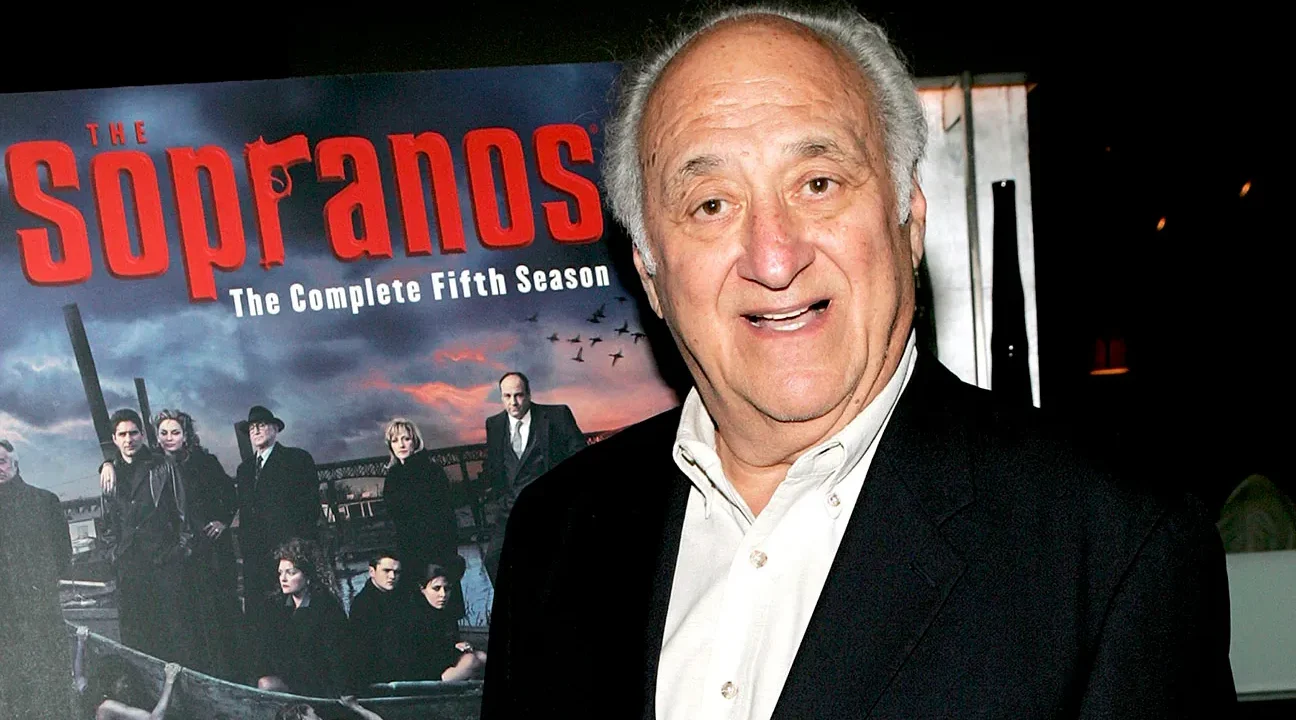A life in two acts
Adler’s career began far from television sets and film sound stages. Before most viewers ever saw him, he had already logged years in Broadway houses as a stage manager, producer, and director on dozens of productions. That foundation never left him. It gave him an instinct for rhythm, an ear for dialogue, and an eye for the small choices that make a scene breathe.
The move to on camera work came late, but the timing proved perfect. Friends encouraged him to try acting at an age when many think about slowing down. He said yes. Soon he was booking roles and learning the camera’s language with the same focus he once brought to calling cues from a desk at the back of a darkened theater. What he brought with him from those years backstage was priceless. He understood pace, silence, and the way a quiet beat can land with more force than a shout.
The call that changed everything
For many fans, Adler will always be Herman Hesh Rabkin, the wry and steady adviser who stood near Tony Soprano when the room grew tense. His path to that role carried a sense of destiny. An early television part introduced him to creative minds who would later help shape prestige drama. When the chance arrived to join the world of The Sopranos, Adler stepped into it with calm confidence. The part fit him like a well tailored suit.
Hesh worked because Adler never pushed too hard. He did not need to. He understood that stillness can speak. He could deliver a single line and let the silence after it do the rest. That restraint came from years of watching the whole play, not just a single performance. It is what made him feel like a real person inside a famously heightened world. He did not announce importance. He simply was important, and the audience felt it.
Beyond New Jersey
Adler’s second act stretched far beyond that one landmark show. He played Howard Lyman in The Good Wife, a role that grew from a single episode into a long run because the character worked so well. He later returned for appearances in The Good Fight. Those roles showed a different shade altogether, quick with dry humor and surprising warmth. He brought the same unhurried intelligence to network drama that he had shown in cable’s gritty world, proving that his presence could travel easily across styles and tones.
There were films and other series as well. He popped up in comedies and dramas and even soaps, drawing on that precise stage background to serve whatever story stood in front of him. When a scene needed a steady hand, he offered one. When it needed a sly wink, he provided that too. The quality was consistent. You always believed him. He had a way of making even a small role feel lived in, the way a favorite side street carries its own history.
The Broadway foundation
It is easy to focus on the later fame and forget the ground it stood on. Adler’s theater years mattered. He was part of the original production of My Fair Lady, a show that set a standard for exacting musical theater craft. He worked with a generation of giants, from Julie Andrews and Richard Burton to Marlene Dietrich, and he did it in the unforgiving rhythm of live performance where every night resets and every cue must land. Those long seasons backstage shaped his sense of timing and his trust in the ensemble. They also taught him that a production is only as strong as the people holding it together when no one is watching.
That background gave him a practical respect for the people around him. Colleagues often remembered him as generous with younger actors, unhurried on chaotic sets, and rooted in a tradition where the work and the workers matter more than the spotlight. He knew everyone’s job and carried himself in a way that honored each one. That is the theater talking. It is also the mark of a professional who understands that attention is a gift to be used carefully.
Family and roots
Adler’s story is also a New York story. He was born in Brooklyn in 1929 and came of age in a city that taught him both ambition and humility. He lived and worked in New York for much of his life, moving between stages, studios, and the neighborhoods that shaped his ear and his humor. His extended family included a distinguished line of theater artists, and his father worked in the crucible of serious stage craft. Those details explain some of what you sensed on screen. He was raised within a culture that took performance seriously and treated stagecraft as a calling.
The personal details make the portrait complete. He is remembered as a devoted husband, a loyal friend, and a colleague who could be counted on when the schedule went sideways. People liked working with him. That may sound simple, but it is not. Sets and stages can be stressful. The person who brings calm to that environment is invaluable.
A late start that inspired others
There is a story he shared about wondering if he was heading into the twilight of a mediocre career. It was honest and a little sharp, the way theater people can be about their own work. Then he took a chance, walked into an audition room, and changed the arc of his life. That is one reason the tributes feel personal. He reminds people that a new chapter can begin long after many expect it to end. He did not chase a reinvention for its own sake. He answered an invitation to try something new, and in doing so he found the role he was meant to play.
That lesson travels well beyond the arts. It speaks to anyone who has wondered if the time for a fresh start has passed. Adler’s journey suggests that timing is not the only measure that matters. Curiosity matters. Courage matters. So does the willingness to be a beginner again. He carried all of that into a camera close up and discovered that the audience had been waiting for him.
The work on screen
Watch Hesh sit across a table in a tense scene and you see what Adler believed. The work is careful. The choices are small and specific. He lets his eyes do a lot. He leans back when others lean in. He plays the long game inside a single scene. In The Good Wife, he brings that same poise to a very different world, one where power moves through courtrooms and conference rooms instead of back rooms. He finds humor there. He finds a surprising softness too. It is understated, and that is why it lingers. He does not announce depth. He allows you to discover it.
Even in brief appearances, he left fingerprints. A half smile. A pause before a line. A way of glancing aside that told you more than the dialogue. These are not tricks. They are signs of attention. He paid attention to the partner in the scene, to the camera, to the story, and to the audience. That attention became a kind of grace that people felt even if they could not name it.
Why the loss feels large
Adler belonged to two communities at once. Theater people knew him as a rock who kept big productions steady. Television viewers knew him as the seasoned presence who lifted every scene he entered. When someone bridges worlds like that, the loss threads through a wide circle. It reaches the Broadway houses where he learned to care for the work and it reaches the living rooms where people met him late in life and decided they would watch anything he was in.
That is part of what makes his passing feel so personal to so many. He stood for a kind of professionalism that is easy to admire and hard to practice. He brought dignity to every room. He gave younger artists a model of what a long, meaningful career can look like when it is built on service to the story and respect for the people telling it.
Facts and dates
Jerry Adler was born on February 4, 1929, and died on August 23, 2025, at the age of ninety six. His family said he passed peacefully in his sleep in New York. He worked behind the scenes on more than fifty Broadway productions before beginning an on screen career in his sixties. He became widely known for The Sopranos and The Good Wife and continued working into his later years. He is remembered for a calm presence, a generous spirit, and a devotion to craft that never wavered.
A gentle curtain call
What stays with you is his calm. He could lower the temperature of a scene without taking away its energy. He treated every moment as if it mattered. That is what long service backstage will teach. That is what good acting looks like when it is not trying to show you it is acting. Jerry Adler leaves behind a rare example. He showed that devotion to craft can carry you through a lifetime and then deliver you into a surprising new chapter. He also showed that a steady presence can feel like grace.








